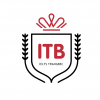Có nhiều bạn hiện giờ vẫn ghi chính tả (spelling) sai cho các từ cực cơ bản như politics (chính trị) cũng như từ vựng cho mảng này còn rất hạn chế, nhiều bạn vẫn chưa biết đến PM là viết tắt của thủ tướng chẳng hạn.
Tiếp nối series các chuỗi bài liệt kê rõ các chính tả mà bạn hay nhầm nhé ạ trong các bài thi nghe IELTS, cùng take note thật kỹ và SHARE cho các bạn của mình được học với nữa để không bị sai lỗi chính tả còn đạt được điểm tối đa nhé.
1. Politics (n) /ˈpɒl.ə.tɪks/: the activities of the government, members of law-making organizations, or people who try to influence the way a country is governed: chính trị
Example: Joe is very active in left-wing politics

2. Politician (n) /ˌpɒl.ɪˈtɪʃ.ən/: a member of a government or law-making organization: nhà chính trị gia
Example: a distinguished/disgraced politician

3. Senator (n) /ˈsen.ə.tər/: (Sen.): a politician who has been elected to a Senate: thượng nghị sĩ
Example: Only two senators voted against the bill.

4. Mayor (n) /meər/: a person who is elected or chosen to lead the group who governs a town or city: thị trưởng

5. Senate (n) (also Senate): /ˈsen.ət/: one of the two groups of politicians who make laws in some political systems such as in the US, Australia, and France, often having different powers from the other group and different rules for members, for example being elected for a longer period: thượng nghị viện
Example: The law has no chance of being passed by the Senate.

6. Regulation (n) /ˌreɡ.jəˈleɪ.ʃən/: an official rule or the act of controlling something: nội quy
Example: safety/health/traffic/fire/sec

7. President (n) /ˈprez.ɪ.dənt/: (the title given to) the person who has the highest political position in a country that is a republic and who, in some of these countries, is the leader of the government: tổng thống
Example: President Kennedy

8. Prime minister (n) /ˌpraɪm ˈmɪn.ɪ.stər/: (PM): the leader of the government in some countries: thủ tướng

9. Parliament (n) /ˈpɑː.lɪ.mənt/: in some countries, the group of (usually) elected politicians or other people who make the laws for their country: nghị viện
Example: On Tuesday the country's parliament voted to establish its own army.

10. Regime (n) /reɪˈʒiːm/: a particular government or a system or method of government: chế độ, chính thể
Example: The old corrupt, total itarian regime was overthrown.

11. Monarchy (n) /ˈmɒn.ə.ki/: the system of having a king or queen: chế độ quân chủ
Example: Is monarchy relevant in the modern world or should it be abolished?

12. Democracy (n) /dɪˈmɒk.rə.si/: the belief in freedom and equality between people, or a system of government based on this belief, in which power is either held by elected representatives or directly by the people themselves: chế độ quân chủ
Example: The government has promised to uphold the principles of democracy.

13. Dictatorship (n) /dɪkˈteɪ.tə.ʃɪp/: a country ruled by a dictator: chế độ độc tài
Example: a military dictatorship

14. Constitution (n) /ˌkɒn.stɪˈtʃuː.ʃən/: the set of political principles by which a state or organization is governed, especially in relation to the rights of the people it governs: hiến pháp
Example: Britain has no written constitution.

Like và Follow fanpage BEC English Centre để update thêm các từ vựng và Sample mẫu HOT nhất trong IELTS!
Tham gia ngay cộng đồng IELTS SPEAKING tại BEC : https://bitly.vn/1vby để cập nhật các bài học cũng như đề thi IELTS mới nhất từ cộng đồng các bạn học viên của BEC.
Chúc các bạn ôn tập thật tốt!

